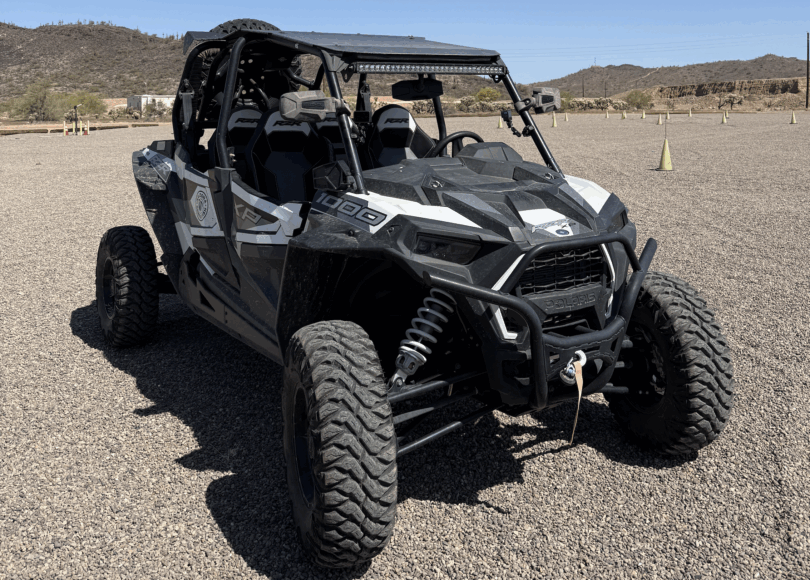Top photo credit: Scott Rinckenberger
MSR squares up with cottage industry brands in a minimalist 10.2-ounce solo bug shelter.
Serious thru-hikers flock to “cottage” industry brands like Hyperlite Mountain Gear, Gossamer Gear, and Mountain Laurel Designs when it comes to ultralight shelters. But bigger brands have largely shied away from trekking pole-supported shelters.
This year, however, MSR entered the ring with the Thru-Hiker Mesh House 1 Trekking Pole Shelter. This single-person bug blocker integrates with the brand’s Thru-Hiker Wings for rain protection. We pitched the minimalist shelter for this first look review.
MSR Thru-Hiker Mesh House 1: A True Minimalist Shelter
The compact 4 x 7-inch compressed size and the lack of poles indicate the minimalist ethos behind the Mesh House 1. A simple shelter, it relies on one trekking pole and five stakeout points for structure. And as the name indicates, a majority of the tent body comprises 10-denier polyester micro-mesh. The remaining bathtub floor uses MSR’s 15-denier Xtreme Shield ripstop nylon.
Although lacking exotic fabrics like Dyneema composites or single-digit deniers that exist in cottage industry thru-hiking shelters, the Mesh House 1 weighs in at 10.2 ounces. Adding the MSR Thru-Hiker 70 Wing produces a 24.6-ounce flexible shelter system that can protect against bugs, wind, and precipitation in a variety of setups.
Quick Pitch
Erecting the Thru-Hiker Mesh House 1 couldn’t be any easier. Take out the four corners, prop a trekking pole under the remaining guy line, anchor that line 5 feet away, and dial in the tension.
You can also tie off the tent to a tree branch instead of using a trekking pole. MSR includes its Hook Tent Stakes and a pre-rigged tensioner on the guy line.
MSR Thru-Hiker Mesh House 1 Review

I have been wary of trekking pole shelters, unable to trust them even in slight breezes. I set up the Thru-Hiker Mesh House 1 in the wildlife preserve behind my house. During the test, the overnight forecast called for 15mph winds, and I fully expected to wake up to a flattened tent.
But to my surprise, the tent was still up in the morning.
For 2 more days, the forecast called for sustained winds. After checking all the stakes and guy line tension, I left the tent erected for the duration of the predicted winds — and it never collapsed.
The tent’s integrity relies on the stakes and the tension in its solitary guy line, so this depends on the stakes and trekking pole remaining firmly planted. In my test, the included Hook Tent stakes performed adequately.
However, I prefer MSR’s Mini Groundhog stakes for improved holding power at only a slight increase in weight. I’d also recommend notching the trekking pole handle to prevent the guy line from sliding off.
Still, the 20-square-foot floor and 38-inch peak height of the Thru-Hiker Mesh House 1 proved acceptable for a minimalist shelter and my 6′ self. Plus, the abundant mesh made ventilation excellent. After hours of slumber in sustained winds, the tent body never touched my sleeping bag near the bottom, relieving my concerns about condensation.
Conclusions
The MSR Thru-Hiker Mesh House 1 is an attractive option for the minimalist solo long-distance hiker. Combining it with the MSR Thru-Hiker 70 Wing provides a flexible shelter system that can be pitched as a fly only, bug shelter only, or a combination of both at a respectable weight for a minimalist shelter.
The structural integrity depends on maintaining guy line tension and an upright trekking pole, but this is similar to other shelters in this class.
Finally, the MSRP of $150 for the Mesh House and $170 for the 70 Wing makes MSR a good buy compared to many cottage industry alternatives.








